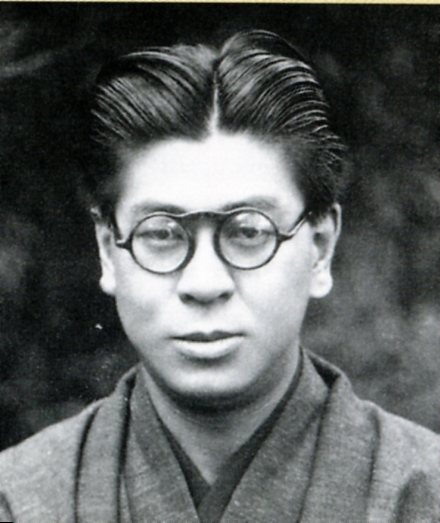- Hayashi Fubo
Infobox Writer
name = Hayashi Fubō

caption = Hayashi Fubō
birthdate = birth date|1900|1|17|df=y
birthplace =Sado island ,Niigata prefecture ,Japan
deathdate = death date and age|1935|6|29|1900|1|17|df=y
deathplace =Kamakura, Kanagawa Japan
occupation = Writer
genre = historical novels
movement =
notableworks =
influences =
influenced =nihongo|Hayashi Fubō|林不忘|Hayashi Fubō; (
17 January 1900 -29 June 1935 ) was thepen-name of a novelist in the earlyShowa period Japan . His real name was Hasegawa Kaitarō. He wrote under 3 different pen names, each with a unique personality, and caused a sensation with the sheer brilliance of his fiction, non-fiction and translations.Early life
Born on
Sado island ,Niigata prefecture , Fubō was the brother of novelistHasegawa Shiro . His older brother was a painter, and his younger brother was a translator ofRussian literature . His father was a newspaperjournalist , and relocated toHakodate inHokkaidō , where Fubō was exposed at an early age to a cosmopolitan environment with many foreign influences. In August 1920, he decided to experience life in theUnited States , and worked as a cook while studying atOberlin College inOhio . It is not certain whether or not he actually graduated, as he spent most of his time wandering all over the United States sightseeing and taking notes on his experiences. In 1924, he returned to Japan by way ofDalian , in theKwantung Leased Territory and decided to try his luck as a writer.Literary career
Soon after his return to Japan in 1924, he used the pen-name of nihongo|Tani Jōji|谷譲次| and submitted stories to the literary magazines "Shin-Shonen" ("New Youth") and "Chūō Kōron" ("Central Review"). These stories with a humorous twist grew into a popular series describing cosmopolitan life based on his experiences in the United States, called "Meriken Jappu". The first volume in this series, "Jappu shobai orai" ("A Jap Businessman's Guide") was published in 1927.
As nihongo|Maki Itsuma|牧逸馬|, he wrote true-life
mystery novel s, and stories about sophisticated city life in Tokyo, which drew in a large female fan base. In 1927, "Chūō Kōron" sponsored a round-the-world trip, together with his wife, lasting for one year, in exchange for essays and stories set in each port of call.However, he is best known as nihongo|Hayashi Fubō|林不忘|, the pen name under which he created a number of semi-
historical novel s which were serialized in the "Tokyo Nichi Nichi Shimbun " and "OsakaMainichi Shinbun ." In "Shimpan Ooka Seidan" (1927-1928), his main protagonist was "Tange Sazen ," a one-eyed, one-armed super-swordsman. The character was an immediate hit, and the first screen version of Fubo's stories appeared in 1928.Fubo died in 1935 at his home in Kamakura of acute
bronchial asthma . His grave is at the temple of Myohon-ji in Kamakura.External links
* [http://www.aozora.gr.jp/index_pages/person272.html e-texts of works as Tani Joji] at
Aozora Bunko
* [http://www.aozora.gr.jp/index_pages/person304.html e-texts of works as Maki Ikuma] atAozora Bunko
* [http://www.aozora.gr.jp/index_pages/person290.html e-texts of works as Hayashi Fubo] atAozora Bunko
* [http://www.city.kamakura.kanagawa.jp/bunka/bunjinroku/hayasi2_e.htm literary figures from Kamakura]
Wikimedia Foundation. 2010.
